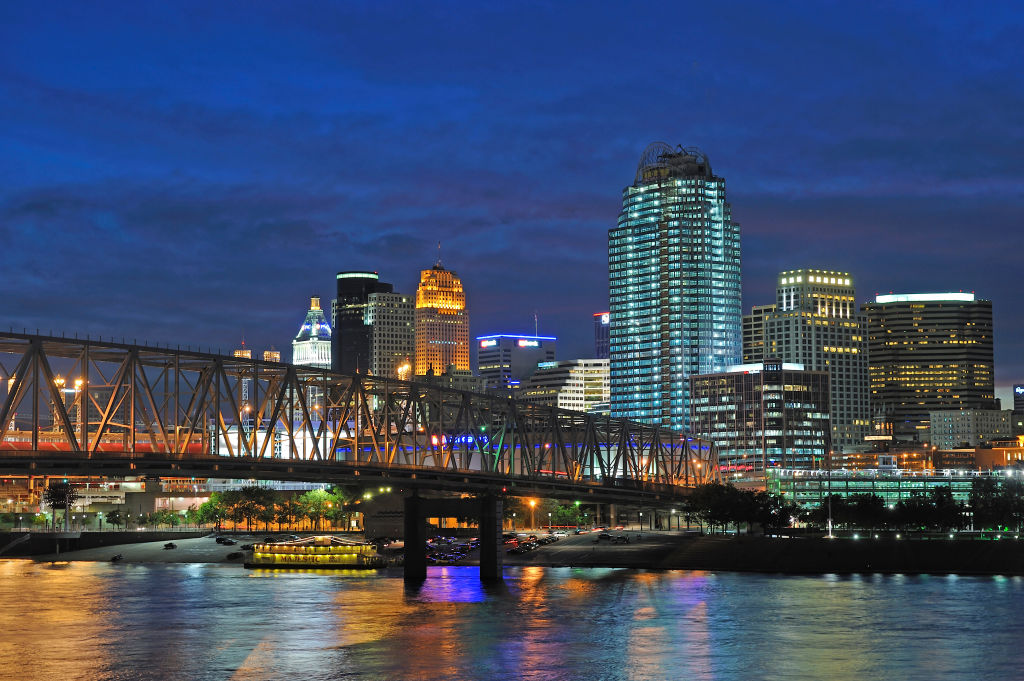In his 1976 book America’s Third Century, British economist, editor, and futurist Norman Macrae posed the question: Would the United States follow the same cycle of rise and fall as its mother country did from 1815 to 1914, or would the 21st century be another American century that would make the British Empire look like “the fuse that lit the rocket?”
Given the 15 years America had just endured when he was writing, it was not a time of easy optimism about our future. A country marred by domestic unrest, political violence, foreign policy humiliation, political corruption, and economic stagnation did not sound much like a rocket ride. And Macrae’s little 116-page volume, which began as a long essay in what was then called the London Economist in the fall of the year before, could hardly be called optimistic. But it did point to reasons for hope.
One of Macrae’s biggest questions was whether Americans could again use our vast continental expanse to exploit technology in ways that other nations could not. Writing more than a decade before Cisco would ship its first router and 14 years before commercial dial-up online access, Macrae described a world in which those he called “brain workers” would be able to do their jobs from home. That, in turn, would give Americans more choices about where and how to live.
The revolution he foresaw was born of “telecommunications allied with the computer” and predicted what must have sounded pretty wild in an era when a three-minute coast-to-coast call at off-peak hours was sold as a bargain at what would be $5.50 today.
“[Brain workers] are going to be able to stare into computer screens and communicate through them, from their own homes in pleasant parts of the world,” he wrote “with the cost of communication not depending on distance.”
Macrae didn’t get everything right in this book or elsewhere. He was way ahead in predicting the collapse of Soviet communism by the end of the 1980s at a time when the conventional wisdom held very much the opposite. But he was also early in adopting a point of view that would prove very conventional and very incorrect: that the end of the Cold War would produce an era of peace, stability, and internationalism. Womp, womp. But it feels almost spooky to read his vision about an America laced together by communication lines in which a growing number of citizens were free to live where they liked, not in the shadow of a mill or at the other end of a clogged ribbon of asphalt from their office jobs.
By the mid-1970s, urban decay was the norm. High crime, poor services, endemic corruption and, for those who had escaped to the suburbs, grueling commutes were already the norm. The picture Macrae painted of a successful American future was a return to much of the lifestyle of our agrarian past: small communities like the ones in which 70 percent of American families were raised at the beginning of the 20th century.
Mechanization and automation brought the majority of Americans to cities, but Macrae believed the same forces would send them back to the countryside. He saw how decentralization could improve family formation, increase quality of life, and decrease political and cultural tensions that had helped multiply the miseries of urban life in the late 1960s and 1970s.
He lived until the robust age of 86 in the year 2010, long enough to see much of what he foretold decades before come to pass, including his prediction in 1984 that access to what we would come to call the internet “will be miniaturised so that your personal access instrument can be carried in your buttonhole, but there will be these cheap terminals everywhere.” Even at McDonalds. Even in your refrigerator door.
But just imagine what Macrae would have made of the past three years and the pandemic-powered quantum leap into the future he imagined. Consider two headlines from the New York Times on Sunday: “Downtown Comebacks” and “The Best Cities for Remote Work.”
Superficially, the stories seem to be in conflict, but a closer look reveals the opposite. None of the 10 largest cities in America are in the 10 best cities for remote work, which were scored for wages, cost of living, access to amenities, home and lot sizes, and earning potential, among other factors. The largest cities in the top 10 for remote work were Austin, Texas, the 11th largest in the nation, and the 12th largest, Jacksonville, Florida.
Most of the best places for brain workers to “stare into computer screens and communicate through them” are small markets, like top finisher, Plano, Texas (72nd largest) and runner-up, Frisco, Texas (110th largest). Places like Durham, North Carolina; Kansas City, Missouri; and Cincinnati, Ohio, dominate the top quarter of the rankings.
Cincinnati is also the subject of the “Downtown Comebacks” piece. And what is immediately evident is that Porkopolis is not coming back as a commuter destination, but as a cluster of attractions and amenities. Like the other comeback kids, Cincinnati is trying to find a way to thrive without the daytime foot traffic of office drones scurrying out for quick lunches and shoe repairs and instead catering to people looking to spend their leisure time in attractive, pleasant, safe settings. America’s 65th largest city turns out to be all of those things.
Reclaiming the small and medium-sized cities that were wiped out in deindustrialization and then hit again by the pandemic is not exactly what Macrae predicted, but it’s pretty close. And maybe even better. Plus, there’s plenty of small communities that have seen mini-booms as big city denizens went looking for a more humane scale and pace and safe places to raise their families.
Not a bad view from 46 years in the past.







Please note that we at The Dispatch hold ourselves, our work, and our commenters to a higher standard than other places on the internet. We welcome comments that foster genuine debate or discussion—including comments critical of us or our work—but responses that include ad hominem attacks on fellow Dispatch members or are intended to stoke fear and anger may be moderated.
With your membership, you only have the ability to comment on The Morning Dispatch articles. Consider upgrading to join the conversation everywhere.